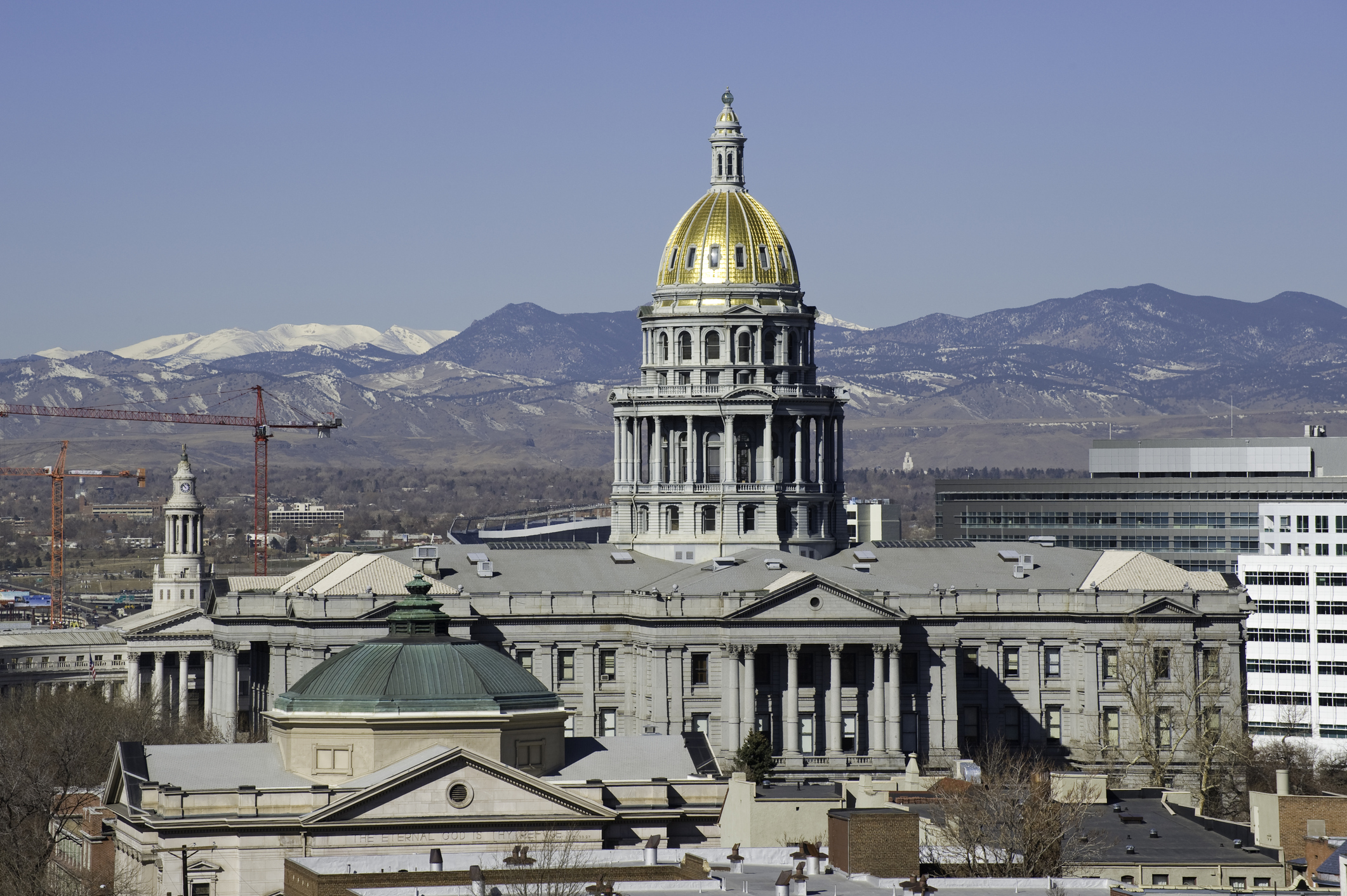How One Cake Shop Owner Prevailed In Colorado’s Supreme Court
The following is an edited transcript of an interview between Daily Wire Editor-in-Chief John Bickley and Jim Campbell, chief legal counsel at Alliance Defending Freedom on a Saturday Extra Edition of Morning Wire. For 12 years, Colorado cake shop owner Jack Phillips has been embroiled in bruising legal battles with the state and an activist ...

The following is an edited transcript of an interview between Daily Wire Editor-in-Chief John Bickley and Jim Campbell, chief legal counsel at Alliance Defending Freedom on a Saturday Extra Edition of Morning Wire.
For 12 years, Colorado cake shop owner Jack Phillips has been embroiled in bruising legal battles with the state and an activist attorney to uphold his First Amendment right to not create messages that violate his religious beliefs. A recent ruling by the Colorado Supreme Court in Phillips’ favor may be the end of that lengthy legal saga. In this episode, we sit down with Jim Campbell, chief legal counsel at Alliance Defending Freedom, which has been representing Phillips, to discuss the conclusion and implications of the free speech case.
* * *
JOHN: Joining us now is Jim Campbell, chief legal counsel at Alliance Defending Freedom, which has been representing Jack Phillips during his lengthy legal saga, which many are hoping has now come to an end. Jim, thanks so much for coming on.
JIM: Thank you.
JOHN: Jack has been in courts fighting for his freedom of speech for twelve years now, during which time he’s faced several lawsuits. First, can you give us a brief history of those lawsuits – who filed them and what were their motivations?
JIM: So, the first lawsuit was filed back in 2012. It was filed by two gentlemen who went into Jack Phillips’ shop and asked for a custom wedding cake celebrating a same sex union. He declined that request because he couldn’t do it in good conscience, celebrate that message, and they filed a discrimination complaint with the State of Colorado. The State of Colorado then brought charges against Jack and that case went all the way to the U.S. Supreme Court back in 2018, when the court issued a ruling that found that the state acted with hostility towards Jack’s faith and it threw out the case that was brought against him. So that was the first case. The second case actually started the first day that the Supreme Court announced it was going to hear that first case. There was an attorney in Colorado who had heard the news and called Jack’s shop and asked him to create a custom pink and blue cake to symbolize and celebrate a gender transition. Jack declined to make that cake because, again, that message celebrating a gender transition was something he couldn’t in good conscience do. So then that attorney who made that phone call filed another discrimination complaint against Jack. That case then started when the state of Colorado picked it up and brought charges against Jack. Rather than sit back and allow that to happen, Jack filed a lawsuit against the state in federal court for, again, acting with hostility towards his faith. And then after a few months, the state agreed to settle that case. And that case was settled. And then the third case started, which was another lawsuit by that same attorney who requested the cake celebrating the gender transition. And that was the case that was just decided recently by the Colorado Supreme Court.

Jack Phillips. Alliance Defending Freedom.
JOHN: What do we know about this activist lawyer who brought these two cases against him?
JIM: Well, this activist lawyer first called Jack’s shop back in 2012 when news first broke about his decision not to create the cake celebrating a same sex wedding. This individual called Jack a “hypocrite” and referred to Jack as a “bigot.” And then you fast forward six years later and the request is then brought asking for a pink and blue cake celebrating a gender transition. Right around that same time, that attorney made another request for a cake depicting Satan smoking marijuana. So, one thing that’s very clear is this attorney does not like Jack Phillips and is trying to harass Jack Phillips and make his life difficult.
LISTEN: Catch the full interview on Morning Wire.
JOHN: So there’s evidence that at least this attorney specifically is targeting Jack, and the state was also deemed to be acting in a hostile way against him. Can you unpack that for us a bit more?
JIM: Yes, so the U. S. Supreme Court back in 2018 found that the State of Colorado is acting with hostility towards Jack’s faith. And it pointed to a couple different things. The first is that when the state was reviewing Jack’s case, there were a number of government officials that disparaged his beliefs and compared his beliefs to the beliefs of people that basically instituted the Holocaust. And the Supreme Court also found that Jack was being treated differently than other cake artists in the state. So there were other cake shops that were asked to create cakes that were either denigrating LGBT messages, and they declined to do so, and the state didn’t punish them. But when Jack declined to create a cake celebrating a same sex wedding, he was punished. So the Supreme Court said that this unequal treatment and these disparaging comments about Jack’s faith showed that the State of Colorado was acting with hostility towards his beliefs.
JOHN: All right, so now all these years later, we have this Colorado Supreme Court ruling. And many people are saying, look, this is the end of the legal battle against Jack Phillips. What exactly did the Supreme Court rule, and is it really the end?
JIM: The Colorado Supreme Court found that this attorney that brought the lawsuit did so using the wrong procedure, so they kicked the case out for that procedural reason. We’re hopeful this is the end of the road for Jack – that people will leave him alone, that the government of Colorado will leave him alone, that activists in the state will stop harassing him with requests simply to gin up lawsuits to be able to bring against him. But ultimately we have to wait and see. I mean, our position is: Enough is enough – let’s leave Jack alone and let him live his life consistent with his religious beliefs. And the other thing that a lot of people miss about Jack is that Jack serves everyone. He serves all customers, he serves all people, but he can’t create a cake that expresses all messages. If a message conflicts with his religious beliefs, he can’t do that, but he’ll serve everyone. He serves people from the LGBT community, that’s not an issue for him. It’s only when someone — anyone — asks for something expressing a message that he disagrees with.

pawel.gaul. Getty Images.
JOHN: Is there any chance that this ruling is appealed?
JIM: This ruling cannot be appealed because it is a question of Colorado state law and the Colorado Supreme Court is the highest authority on that issue. So this case is final, and Jack hopefully can now put behind him 12 years of non-stop litigation against him.
JOHN: Now you guys have obviously worked closely with Jack over these years. How has this impacted him personally? Has this done a lot of damage financially, professionally?
JIM: It has undermined his business in many ways. He was forced to give up his wedding business as a result of the first case, and he still hasn’t brought that back. So it has been difficult from a financial perspective because the wedding aspect of his business was a significant part. It’s also been hard on him and his family personally because they’ve experienced death threats, hostility, people coming into their shop and yelling very, very hateful messages at them. So that’s been difficult. But in the end, one thing that Jack always talks about is that this has really drawn his family closer and it has given them an appreciation in their faith, in their faith in a way that they didn’t have before. So there certainly has been some good that has come of it. But 12 years of your life just absolutely devoured by litigation and activists coming after you and state officials acting with hostility towards your faith is sure to take its toll.
JOHN: The legacy media has covered these cases at times over the course of the years. Do you feel that there’s anything that’s been missing from their coverage? What has been not emphasized enough about the nature of these cases?
JIM: They want to make this a story about Jack not serving people, when it’s really a story about Jack not wanting to express and celebrate certain messages. That’s something that is absolutely lost, when many in the media talk about Jack’s case. And that’s something that we try to be very, very clear about. Jack serves everyone. Doesn’t matter who you are. The question is: what are you asking him to communicate through that custom cake? And if it’s a message that conflicts with his beliefs, then it’s not something he’s able to do.
JOHN: Does this string of cases impact precedent in terms of legal expectations for people across the country in any way?
JIM: I think one of the cases that’s in the background in all of these matters is one that was decided by the U.S. Supreme Court just last year, called 303 Creative. And the 303 Creative case involved a graphic designer, and in that case the graphic designer objected to creating a custom web page celebrating a same sex wedding. And the Supreme Court said that the state of Colorado couldn’t force her to do that. That principle is very, very important, and it’s a principle that provides lasting protection, not only for graphic designers, like the one in that case, but also for custom cake artists like Jack Phillips, as well as wedding photographers – and many others. So, I think that that case, 303 Creative, provides significant ongoing protection for creative professionals that want to operate consistent with their beliefs and don’t want to be forced to express messages that they disagree with. But in terms of this decision from the Colorado Supreme Court in Jack’s most recent case, it really just decides a question of Colorado state procedure. But it’s the 303 Creative decision that provides that lasting protection.
JOHN: Now that 303 Creative was another one of the cases you guys were involved with. Do you have other cases in the works now that are similar to Jack Phillips’ cases?
JIM: In terms of others ongoing we have another one right now where we represent a wedding photographer in New York State. She’s a wedding photographer who doesn’t want to be forced to create images that celebrate events or express messages that conflict with her beliefs – and that case is ongoing there. We represent a wedding photographer in Louisville, Kentucky, who has a similar case, where she raises similar arguments that she doesn’t want to be forced to express messages that she disagrees with. So, this is an ongoing issue. There is more for federal courts to decide. And we’re hopeful that they will follow what the U.S. Supreme Court said in 303 Creative, which is these creative professionals can’t be forced to express messages that they disagree with.
LISTEN: Catch the full interview on Morning Wire.
JOHN: Final question, stepping back a bit here. What is the larger takeaway, in your view, from this string of cases against Jack Phillips and their results?
JIM: I think it shows that there’s a lot of hostility towards people of faith. The government didn’t need to pick up this first case and treat it, Jack differently than it was treating other cake artists, but it did. And the only reason that we can come up with for why they would do that is the hostility towards his beliefs. The reason why this activist attorney concocted this request to ask for a custom cake celebrating a gender transition was because of hostility towards Jack’s faith. So at the end of the day, I believe what these cases show is that there’s a lot of hostility for people that simply want to quietly live their life consistent with their beliefs, and that’s unfortunate. And we hope that this is the end of the road for people doing that to Jack Phillips. And we hope more broadly that people throughout our society see that we should be allowing people to live according to their beliefs, and we don’t need to be harassing them and discriminating against them when they do it.
JOHN: Well, Jim, thank you so much for coming on to discuss these important cases.
JIM: Thank you.
JOHN: That was Jim Campbell, chief legal counsel at Alliance Defending Freedom – and this has been a Saturday Extra edition of Morning Wire.
Originally Published at Daily Wire, World Net Daily, or The Blaze
What's Your Reaction?

































































































